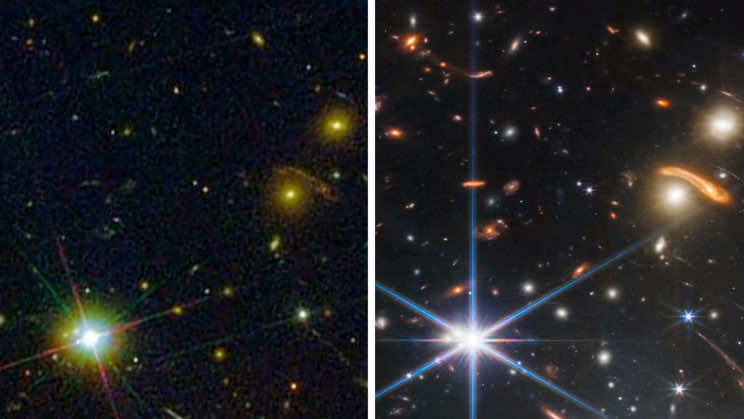The James Webb Space Telescope (JWST) outperforms expectations, which may pose a dilemma for some early discoveries. An improvement to our knowledge of how one of its cameras works could indicate that many galaxies detected in early data are not what astronomers thought they observed.
For many years, scientists believed that the oldest galaxies in the cosmos were small and had mismatched structures. However, the Washington Post reports that JWST has found those galaxies to be astonishingly large, balanced, and well-formed, casting doubt on long-held theories about the origin of our universe.
“The models just don’t predict this,” said Garth Illingworth, an astronomer at the University of California at Santa Cruz. “How do you do this in the universe at such an early time? How do you form so many stars so quickly?”
According to WaPo, older views of the universe appeared to support the widely held belief that early galaxies were disorganised places. On the contrary, the JWST implies that such research findings were a result of previous observatories’ limited capabilities, such as Hubble’s.
“We thought the early universe was this chaotic place where there are all these clumps of star formation, and things are all a-jumble,” said the Space Telescope Science Institute’s Dan Coe, adding later that, before the JWST was launched into orbit, Hubble’s imagery was “missing all the colder stars and the older stars. We were really only seeing the hot young ones.”
The scientific community has been astonished by the recent JWST discoveries. Still, they are in no way a reason to worry. On the contrary, large-scale technological advancement has a tendency to be sparked by significant technology developments in a variety of domains.
In reality, results like these show that the JWST is doing what scientists expected: discovering new things about our vast cosmos and solving old problems while raising significant new ones.

